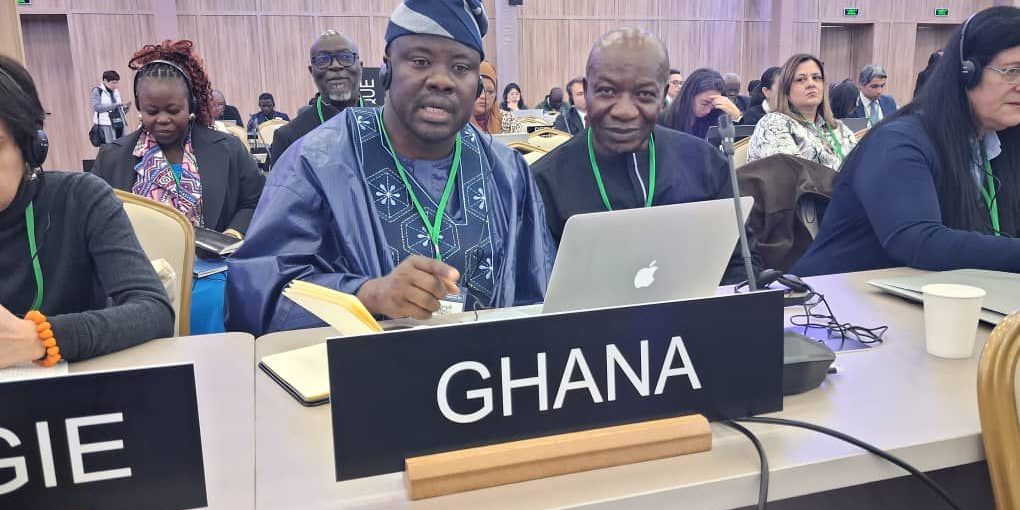Ghana has reaffirmed its commitment to advancing a cultural agenda that promotes inclusion, resilience, and sustainable development at the 43rd UNESCO General Conference in Paris, France.
Delivering Ghana’s intervention at the Culture Commission meeting, the Deputy Minister for Tourism, Culture and Creative Arts, Hon. Yussif Issaka Jajah, underscored Ghana’s strong alignment with UNESCO’s Global Priority Africa, gender equality, and the inclusion of least developed countries, small island developing states, youth, and indigenous peoples.
He emphasized that these global priorities reflect Ghana’s own national development goals and the African Union’s Agenda 2063, which seek to leverage culture as a driver of social and economic transformation across the continent.
Hon. Jajah commended UNESCO’s efforts to safeguard cultural heritage in emergencies and combat the illicit trafficking of cultural property, as well as ongoing global discussions around the restitution of cultural materials taken during the colonial era. He reiterated Ghana’s support for the universal ratification of the 1954 Hague Convention, the expansion of the Heritage Emergency Fund, and community-led cultural initiatives that integrate traditional knowledge into climate action.
“Ghana firmly supports the full integration of culture into broader development policies, including education and climate action,” he stated. “We therefore endorse the push for culture as a standalone goal in the post-2030 agenda.”
The Deputy Minister also highlighted the critical role of tourism, cultural, and creative industries as engines of employment and innovation, particularly for women and youth, and called for increased investment in capacity-building and digital skills to help African creatives fully harness the potential of their sectors.
Hon. Jajah further welcomed the outcomes of the UNESCO Youth Forum, describing it as a vital roadmap for integrating youth perspectives on culture, climate action, and sustainable development. He emphasized the importance of protecting cultural identity, preserving indigenous knowledge systems, and supporting youth-led digital storytelling and heritage projects as tools for building climate resilience.
He noted that the creativity, innovation, and commitment of young people remain invaluable assets in addressing the challenges of climate change, adding that empowering youth to lead at the intersection of culture and sustainability would help build more inclusive and resilient societies.
Hon. Jajah reaffirmed Ghana’s dedication to working with UNESCO and international partners to promote culture and tourism as dynamic forces for peace, social justice, and sustainable development, while ensuring that Africa’s cultural heritage continues to thrive in a changing global landscape.
Source: Divine Owusu-Ansah






